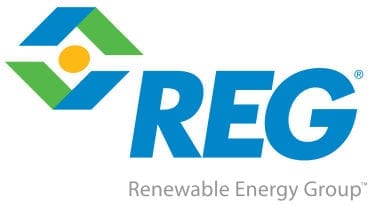By Troy Shoen
Sponsored by: Renewable Energy Group

Fleets interested in replacing petroleum diesel with a cleaner fuel alternative have a number of options.
Depending on their choice, there are also a number of changes they may need to make to their operations, including buying new vehicles or modifying existing ones, upgrading fuel infrastructure, finding a supplier and retail outlets that offer the fuel, and more.
Then there’s biodiesel. Making the switch to biodiesel blends is easy:
- It’s a drop-in replacement to petroleum diesel, with no expensive vehicle or equipment upgrades required
- Fleet performance stays strong and warranties are safe
- Biodiesel is available from suppliers and retailers nationwide
- Biodiesel typically costs less than petroleum diesel across the US
“The beautiful thing about using biodiesel is that there is no investment for infrastructure or retrofitting vehicle components to make it work,” said Vince Buonassi, Group Manager of Transportation Programs at G&D Integrated, a for-hire carrier. “You just fill your tank and you go. And the benefits are realized from the very first moment you start combusting and burning that fuel.”
Strong Performance, Lower Emissions
What are those benefits? Biodiesel has a higher Cetane number and more lubricity than petroleum diesel. Fleets are also reporting that biodiesel’s cleaner burn is contributing to fewer after-treatment failures from plugged diesel particulate filters.
“I use a B20 blend (20% biodiesel, 80% petroleum diesel) in absolutely everything that’s diesel-powered that we have,” said Ed Davison, Co-Owner of hauling company S.K. Davison Inc. “I’ve never noticed a problem in anything.”
Biodiesel is also environmentally friendly. Studies have found that biodiesel reduces lifecycle greenhouse gas emissions by up to 86%.[1] And increasingly, fleets are finding that sustainability goals are linked to business goals.
“We’ve noticed that there are more and more customers asking us to participate in their sustainability efforts,” said Buonassi, of G&D Integrated. “We’ve actually been awarded freight based on our biodiesel usage.”
Studies have found that biodiesel reduces lifecycle greenhouse gas emissions by up to 86%.
Finding the Right Fuel
As with any fuel, choosing the right biodiesel supplier is critical. Mahoney Environmental gets its biodiesel from Renewable Energy Group (REG), North America’s largest producer of biodiesel. Mahoney Environmental’s confidence in the high quality of the REG fuel persuaded the company to use biodiesel blends of up to B20 across its entire fleet.
“I certainly wouldn’t put anything into the vehicles that isn’t going to perform and keep them on the road on a daily basis,” said Jeff Corbin, the company’s Director of Maintenance and Fleet Operations. “At the end of the day, there’s not a lot of argument to be made against using biodiesel.”
—
About the Author:
Troy Shoen is a Senior Marketing & Sales Manager for Renewable Energy Group, America’s number one biodiesel producer and an innovator in the clean fuels industry. Troy’s duties include fuel sales, compliance trading, and marketing, branding, and positioning strategy for REG, as well as regularly speaking across the US about the benefits of renewable fuels.
To learn more about REG and to take advantage of biodiesel, visit regi.com or contact Troy at troy.shoen@regi.com.
[1] http://biodiesel.org/docs/default-source/ffs-basics/biodiesel-fueling-sustainability.pdf?sfvrsn=6


